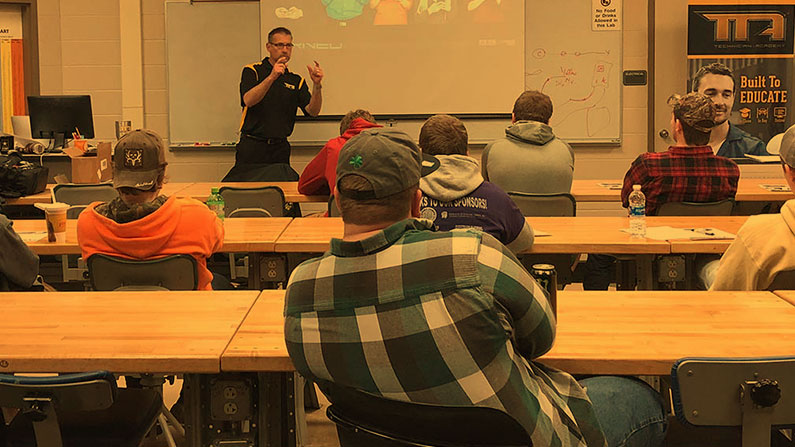Is this question for the shop owner, or the technician? I believe professionals in both categories should ask themselves whether the expense associated with training is justifiable. Let’s look at it, first, from the shop owner’s point of view. As a former shop owner, I know that much of a shop’s success is based on how quickly you turn the bay, while reducing comebacks in the process. In the language of the business owner, it’s how many completed Repair Orders (ROs) the shop turns in a day, as well as the Average Repair Order (ARO) dollars. Of course, additional elements factor into creating a successful shop—and we’ll cover those in future articles.
I’ll share an experience I witnessed at a previous position; the only details I’m altering are the names of the shop and technicians. And it’s not an isolated example. With 30 years in the industry, I’ve seen the following scenario repeated again and again, both at the dealer level, and also within the independent repair shop.
“Wright’s” repair shop has six bays, two technicians, an oil changer, and the service manager/owner. “Bob” and “Ted,” the technicians, are both ASE master certified and have very good customer service abilities. Ted has been with Wright’s in the same location for 20 years and has a steady cliental. Let’s go back about five years, to the time Bob was hired by Wright’s. Due to an upsurge in customers, the hands-on owner decided to transition himself out of the bay and into the role of full time service manager. Bob left a local OE dealership to join Wright’s. He was a good fit, and worked really well with Ted. When Bob started, he and Ted were both in their mid-forties and shared similar talents. Before Bob agreed to work for Wright’s, he asked if the business provided and supported training opportunities. He was told by the owner, “Sure, we do that.” And because Ted never had demonstrated a desire to participate in any training offered, the owner simply assumed Bob would lose interest, too. Anyway, what was the point of training, when the shop was averaging 8–12 ROs a day, with potential for another four per day? With both technicians operating at perceived capacity, plus a busy oil change bay, things were moving along just great. The shop had up to 20 ROs a day, with a $300 average, which is about $6000 a day. Ted’s base pay is more per hour than Bob’s, simply because he has more tenure at the shop.
Moving ahead, in the five years Bob has been with Wright’s business, he annually attends a couple training classes. The local parts distributor offers the classes, and it costs the shop about $200 per year. The extra cost is justified because Bob earns less than Ted. Some days, Bob takes an online course while eating his lunch, and when asked, “Why?” he replies that the topics interest him. Ted chooses not to go to training because he feels he doesn’t have time to spare. He’s also confident that he’s doing fine with the training he’s had—he’s ASE master certified.
“Anyone who stops learning is old, whether 20 or 80; anyone who keeps learning stays young. The greatest thing in life is to keep your mind young.” – Henry Ford
Bob comes in one Monday and asks for a raise. The owner tells him he’ll get back with him later in the week with his decision. So, after closing down for the night, the owner mulls it over, “Is Bob turning his bays enough to justify the raise? And if so, does Ted also deserve a raise?” The owner pulls the last month’s ROs and starts adding them up. He discovers that Bob is not only turning his bays on average a third quicker than Ted, he’s also averaging a larger dollar amount per RO.
“It’s all to do with the training: you can do a lot if you’re properly trained.” – Queen Elizabeth II
The owner is now watching their work more closely, and notices that Ted is always quicker to take the older model vehicles, and shying away from the new vehicle that might require advanced diagnosis. Then it’s noticed that while Bob is waiting on parts for a vehicle, he is diagnosing another. Then, occasionally, he helps Ted with his vehicle’s diagnosis. The owner wonders what allowed Bob to turn more ROs. Both techs had the same basic skill set when Bob was hired five years ago. They both had access to the same diagnostic tools. Could the training that Bob participated in and attended was responsible for the difference?
So let’s look at the numbers:
- Shop labor rate, $100 per hour
- 14 ROs a day, not including oil change
- 70 ROs a week average $300
- $21,000 per week average




